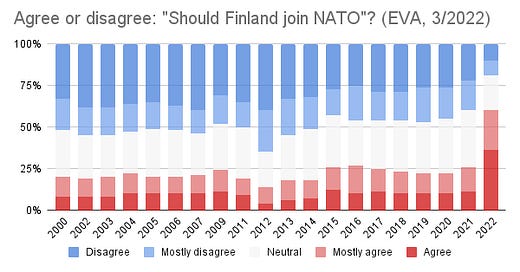The useful idiocy of Vladimir Putin
The Russian president's inept war has done more to empower NATO than Ukraine ever could.
Finnish newspaper Iltalehti reports that Sanna Marin’s government is preparing to apply for membership in NATO. If true, this will mark one of the most dramatic expansions in the alliance’s history, and certainly since its admission of Poland, Hungary, and the Czech Republic in 1999. It may also very well precipitate NATO’s further expansion into Sweden…
Keep reading with a 7-day free trial
Subscribe to Carl Beijer to keep reading this post and get 7 days of free access to the full post archives.




